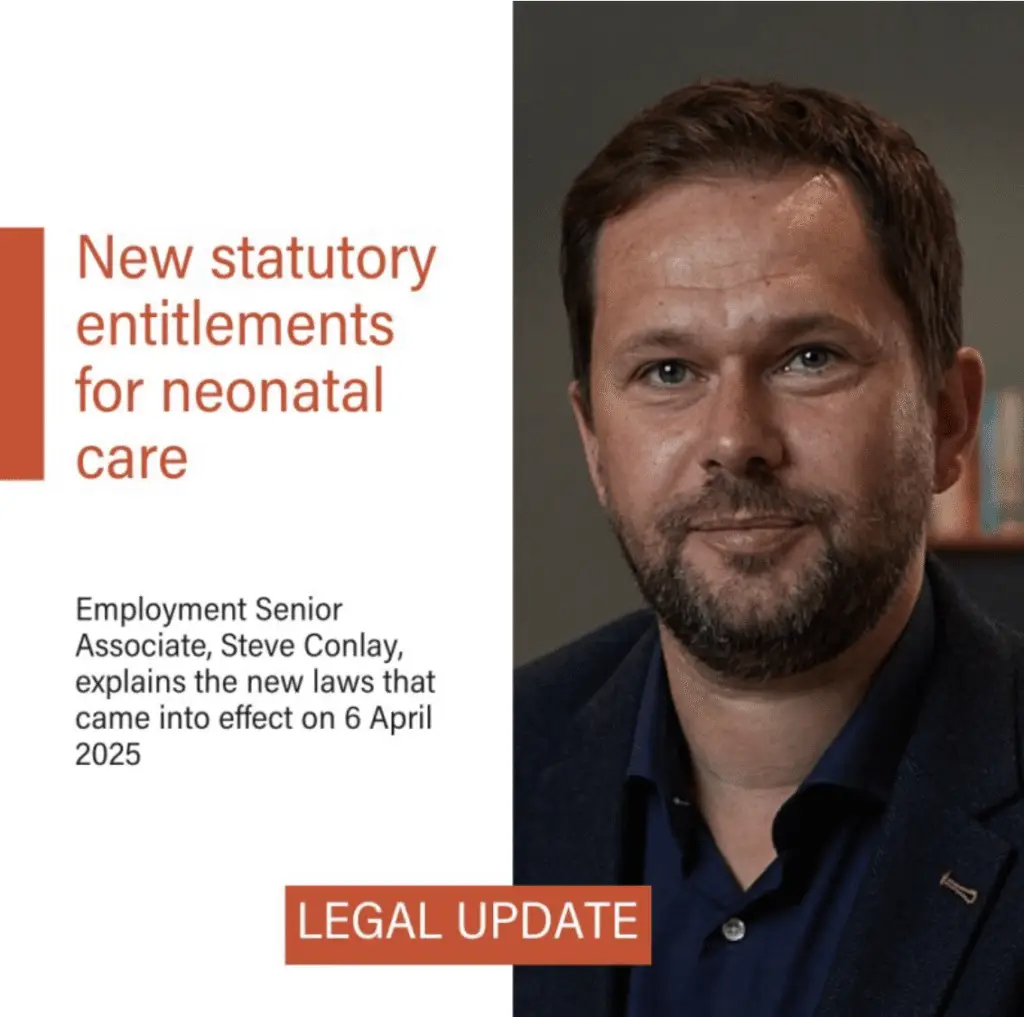Starting on 6 April 2025, the Neonatal Care (Leave and Pay) Act 2023 will come into effect in the UK, granting statutory entitlements to employees whose newborns require neonatal care.
The new act follows years of campaigning from charities and MPs who have fought for greater rights for employees who are faced with care requirements following the birth of a child. Indeed, according to research by the leading UK charity Bliss, the requirement for such care is extremely common, with approximately 90,000 babies cared for in neonatal units each year, equating to about 1 in 7 babies born in the UK.
So, what are the new laws employers need to be aware of? Below BPE outline some of the key points and provide some tips for employers in actioning the changes.
Eligibility Criteria
To qualify for the new statutory entitlements under the act, employees must meet specific eligibility criteria. These criteria ensure that the benefits are provided to those who genuinely need support during the critical period of neonatal care. It is worth noting that the eligibility criteria is different for leave and pay;

- Neonatal care leave: Available from the first day of employment to employees whose infants are admitted to neonatal care within 28 days of birth, for a continuous period of at least seven full days.
- Neonatal care pay: To be eligible for pay, employees must also have a minimum of 26 weeks’ continuous service at the “relevant week”. In addition, the individual must meet the lower earnings limit (£125 per week as of April 2025). Pay is aligned with rates of other statutory family-related pay (£187.18 from April 2025).
- Tier 1 leave: Employees should provide notice on the start of leave and at the start of every week thereafter (or as soon as reasonably practicable). This notice does not need to be in writing.
- Tier 2 leave: For a single week’s leave, a written notice of at least 15 days is required. For two or more consecutive weeks, a written notice of at least 28 days is necessary.
- Policy updates: Review and amend existing family leave policies to incorporate neonatal care leave and pay provisions.
- Payroll adjustments: Ensure payroll teams are aware of the new rules and systems are configured to process statutory neonatal care pay accurately.
- Staff training: Educate HR personnel and management on the specifics of the act to handle requests appropriately.
- Levels of pay: For those employers who offer enhanced pay for maternity/paternity, will the offering of neonatal leave mirror that enhanced offering?











